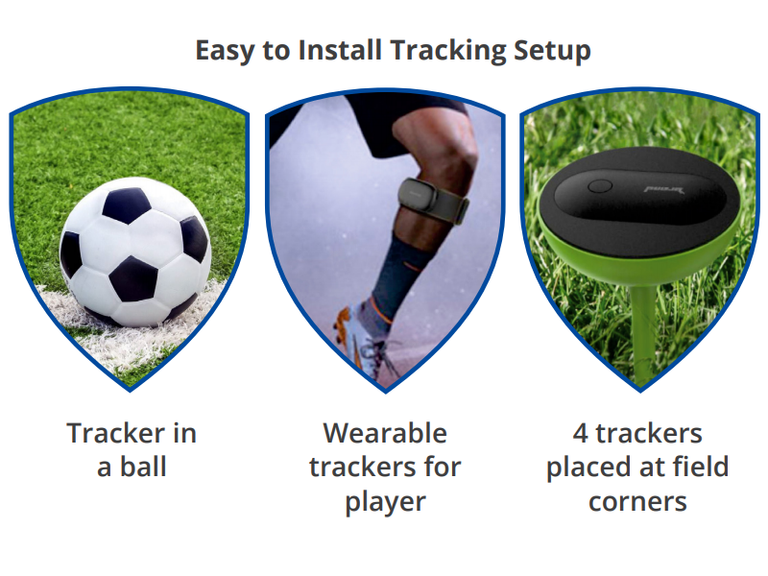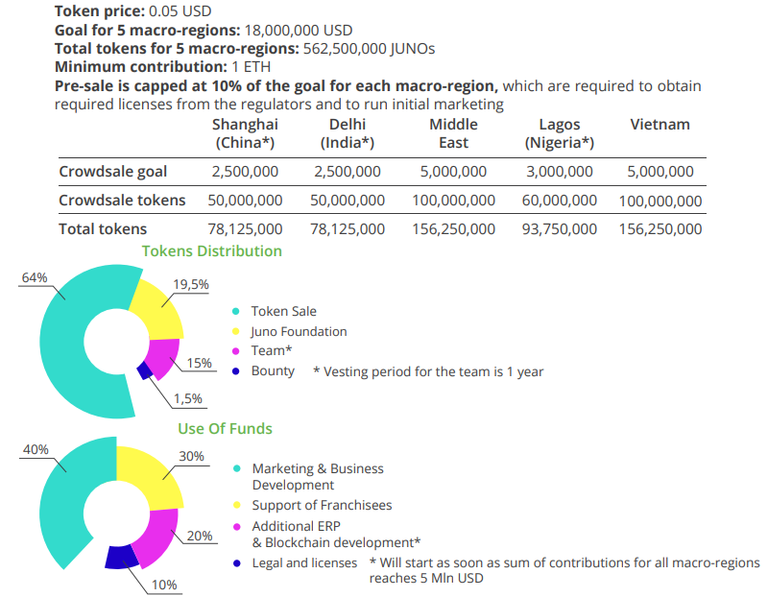
Football, or soccer, is the single most popular sport in the world. Its relative simplicity and accessibility has ensured its success among a broad demographic in many very different nations. Many also consider it an especially suitable game for children. While for some, it is enough to let kids play it freely, others tout the benefits of sports education in football academies, saying that it is a reliable way of encouraging fitness and teamwork – as well as help future athletes get discovered and begin to train early on.
Juno is a blockchain project launched by Junior Football Acaadamies, a network of football schools seeking to build on the sport's international appeal. As it expanded to different jurisdictions, JFA encountered complications in the form of regulations or sanctions that interfered with the process of creating a truly global organisation. Therefore, it has decided to adapt the blockchain technology to support its push into new regions, starting with Vietnam, the Middle East and parts of India, China and Nigeria (all of which have high demand for the development of a more advanced football training infrastructure). It would move both its transactions and its records to the blockchain and implement a truly transparent and reliable system of ratings for academies and coaches.
How will Juno support football?
Interested partners who wish to open new academies as part of the network will have to bid for this right in a JUNO token auction, with starting prices determined by the region. All ownership records and operational data will be stored on the blockchain with the help of IPFS. In addition to the ability to organise lessons, training sessions and local tournaments under the Juno brand and the chance to send pupils to the network's global tournaments and training camps, those partners and their employees and clients (that is, parents of pupils) will also receive Juno's special Education Enterprise Resource Planning software. This software could be accessed through a website or a mobile app and will offer different functionalities to different types of users.
Academy owners and managers could use it to monitor and control various aspects of the academy's operations, including finances, employees, their client base, quality control and loyalty programs. Coaches will be able to monitor student attendance and performance, plan lessons (with the help of an automated planner that will suggest lessons based on age groups) and assign homework. Juno will also give them access to a vast amount of teaching materials, allowing them to improve their own qualifications. Those materials will be provided in accordance with the educational levels of their accounts. To raise the levels, coaches, as well as any other academy employees, would need to pass occasional evaluation tests. Coaches and academies will receive automated ratings based on their test scores. Those ratings will be visible to clients and would give greater weight to coaches' reviews of their colleagues in the system. Clients will use the same software to be informed about their children's progress, schedules and homework and also submit their own evaluations of coaches. Juno's regional brand managers will be able to monitor the performance of academies and resolve problems as they come up, including any complaints that parents may have against coaches.
Juno's software will also provide network academy employees with extensive and helpful analytics on everything from finance to training efficiency. To augment this feature, Juno is working on a Sports Tracker monitoring device (wristband) that would allow for more in-depth monitoring, movement tracking and analysis of the children's performance by different criteria, from movement speed to shooting force. It will be based on inertial navigation system technology and work with sensors set up throughout the fields. It should help form a more effective and fair system of assessment, both for players and for trainers. Later, it may also become possible to use JUNO to pay for additional products and services for pupils.

What are Juno's advantages?
Juno promises to have a parent-oriented approach implemented with the help of cutting edge technologies. Combined with blockchain technology, its software (and later, hardware) should allow it to develop a very efficient and transparent quality control system. That should allow a reasonably high and uniform standard to be maintained across the entire chain, in spite of it being ran by different partners in different nations. This, in turn, should promote its brand and attract more customers by resolving many common concerns about getting their money's worth and receiving an appropriate level of feedback.
The team behind Juno includes experienced businessmen with a long-standing interest in football. As the Sports League Company, they have opened a network including hundreds of junior football academies in CIS countries and elsewhere, mostly ran by their partners. Its new expansion plans will therefore be able to leverage its considerable accumulated experience – as well as some academies that have already been established in the new geographic target markets. Juno cooperates closely with some of the most renowned European football clubs and training programs.
Cutting edge football training
Juno's plan to focus its initial expansion efforts on countries in Asia and Africa makes sense. Football culture has already become well-established there and parents from the growing middle class are eager to enroll their children in football academies, but the regional training infrastructure is still in the midst of development. China and the richer Middle Eastern countries form an especially lucrative market, given the widespread support for such institutions there.
Would Juno and its partners manage to meet this demand? On paper, at least, its proposal looks solid. If properly implemented, its technologies could greatly accelerate the development of the sports education infrastructure while preventing a dilution of standards. They could also raise those standards with a more reliable and efficient data-based model, which would be in line with popular current trends in sports and education. Beyond that, the critical factor would be finding enough local partners that would support this vision. While the successes Juno's founders currently point to are impressive, there is still much to be done in terms of online outreach. But there is still plenty of time to resolve deficiencies in that area.
Token sale information

The JUNO token sale will be conducted in a somewhat unusual way. Users will be able to commit their purchased tokens to a particular region they wish to support, each of which will have its own token totals and sale goals. After a region has gained enough support, an expansion campaign to select a new region will commence. The pre-sale should start in September, followed by the public sale beginning in October 2018.
Links:
Website: https://juno.team/
WhitePaper: https://juno.team/docs/JunoWhitepaper.pdf
Facebook: https://www.facebook.com/fsjunior.eng/
Twitter: https://twitter.com/JunoTeam1
Medium: https://medium.com/@junoteam
ANN: https://bitcointalk.org/index.php?topic=4980053.0
Author: https://bitcointalk.org/index.php?action=profile;u=2053255
Masook pak ekooo!